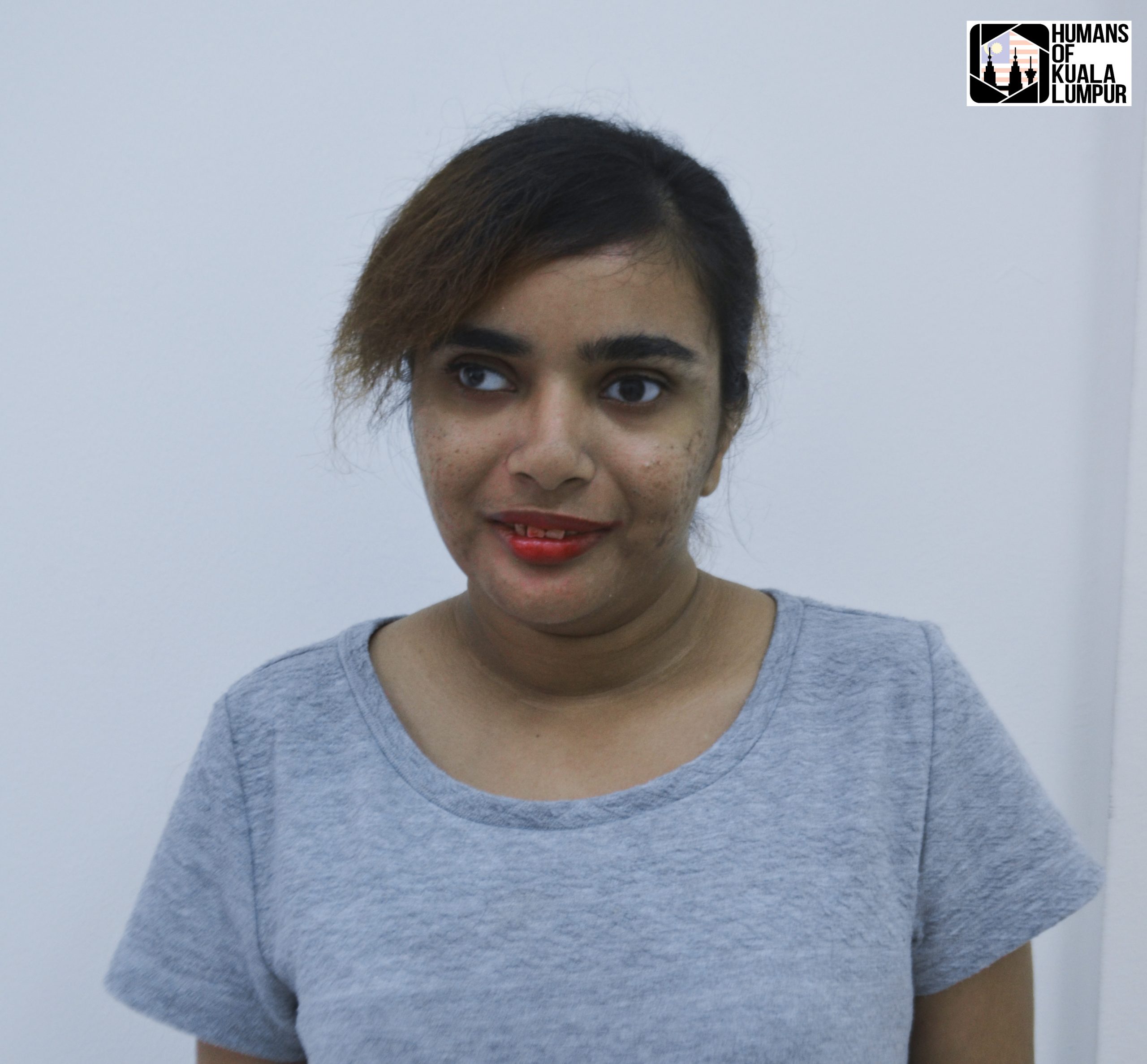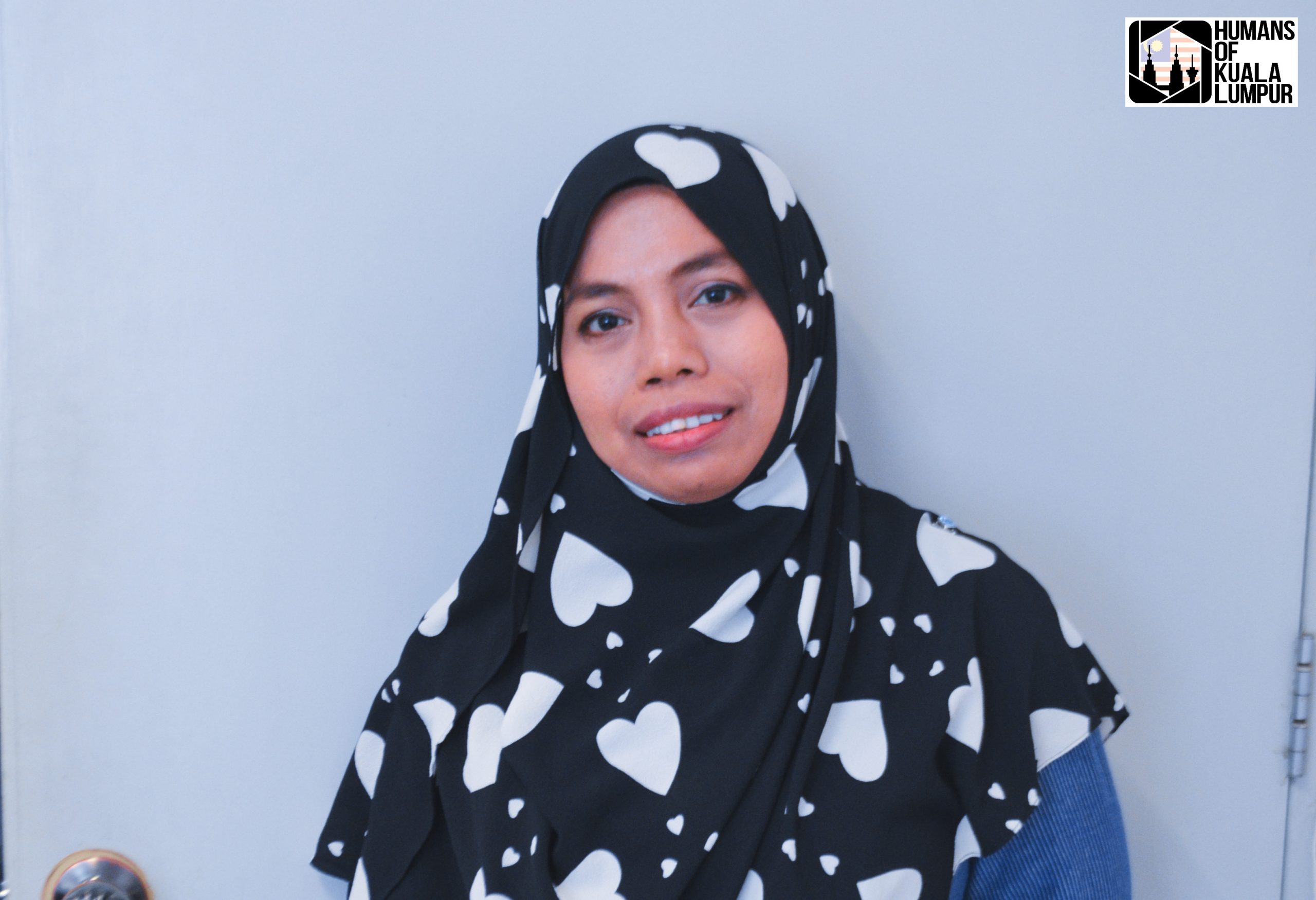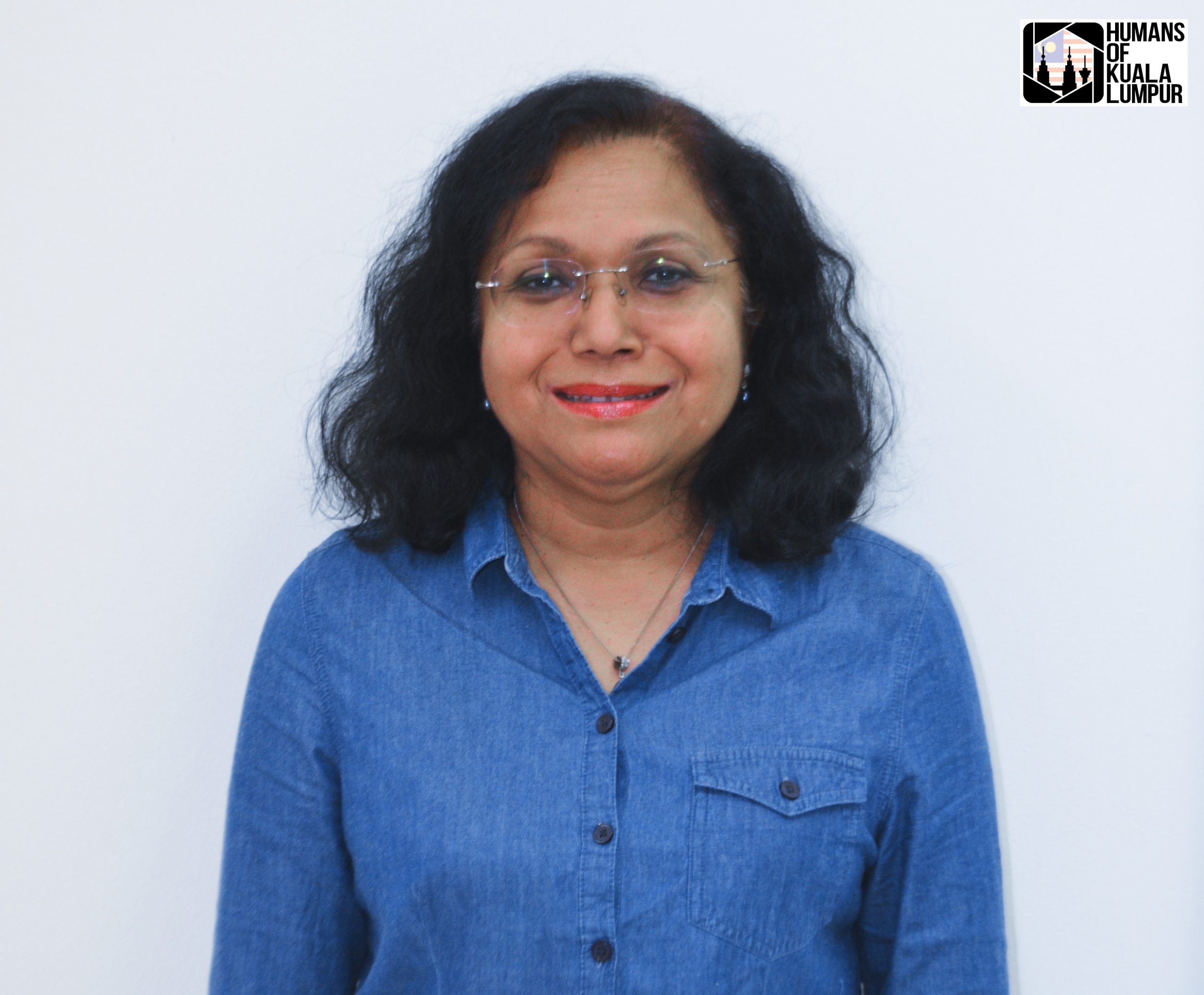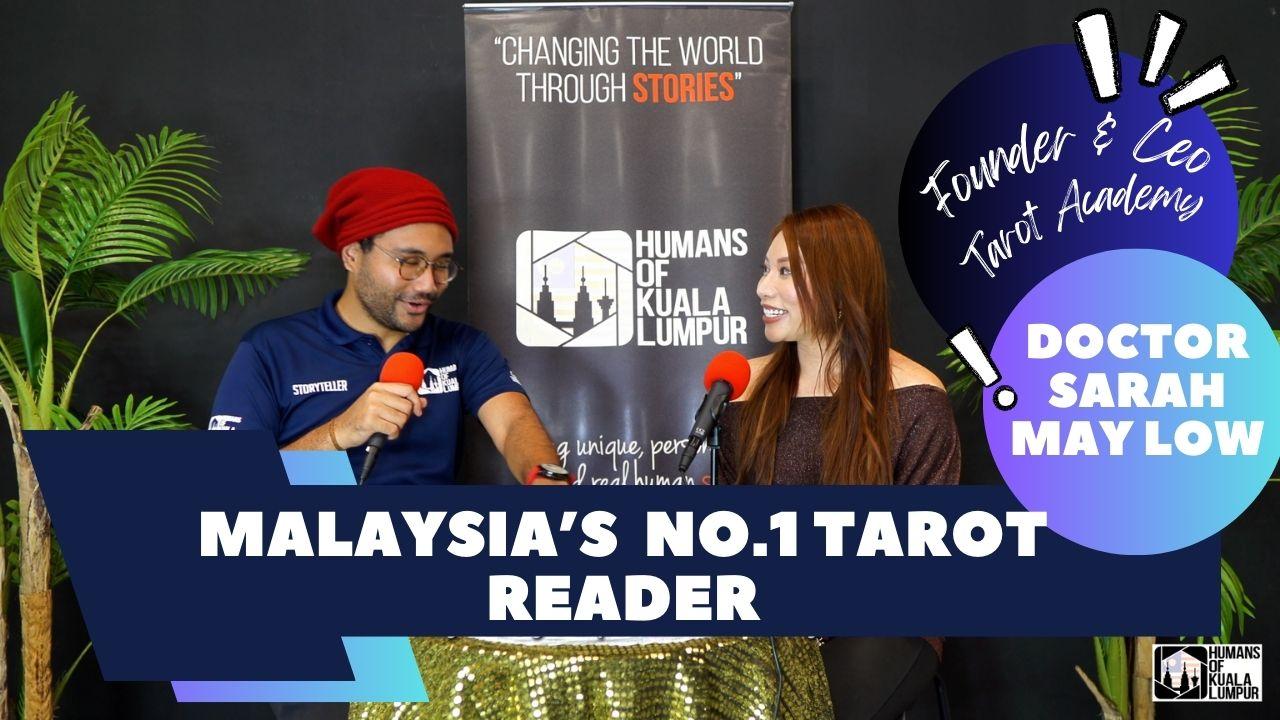Story of a stroke survivor’s journey through loss, recovery, and rediscovery with BTS as her newfound inspiration. Explore her reflections and journey after life-changing challenges.”
Continue reading“From Isolation to Healing: Jay’s Journey Toward Mental Health and Hypnotherapy”
Jay shares his inspiring journey from MCO struggles to becoming a Clinical Hypnotherapist and EMDR practitioner. Discover how hypnotherapy helped him and how he now helps Malaysians overcome anxiety, depression, and trauma.
Continue readingStreet Interview: What’s Your New Year Resolution?
We hit the streets of Kuala Lumpur to ask the people what’s on their mind as we approach the new year! 🌟 From personal goals to exciting ambitions, everyone has something in mind for 2025. 🗣️
Continue readingVIDEO: Meet Malaysia’s No.1 Tarot Reader Dr Sarah May Low (Video Podcast)
In this first episode of Humans of Kuala Lumpur, we dive deep into the world of Tarot with Sarah May Low, a professional tarot card reader who shares her journey, insights, and how tarot can guide us through life’s twists and turns. 🌿🔮 Tune in for a fascinating conversation about intuition, self-discovery, and the power of ancient wisdom in the modern world. 🌙✨
Continue readingFinding Love and Support : A Journey of a Cancer Survivor
From colostomy complications to thyroid cancer, she faced adversity. Yet, in love and resilience, she triumphed.
Continue reading“The voices in my head can be very loud sometimes.”
“I have been living with schizoaffective disorder for around eight years.
Before the diagnosis I was going through depression and a lot of heartbreaking moments. My friends avoided me and that came loneliness. I was attending a fashion design course and it was way too stressful. I got used to bearing everything on my own. Then everything went downhill.
I experienced voices in my head. Sometimes I feel there is someone behind a door and I will talk into the direction, but in fact, there isn’t anyone. I would use one or two hours just to shower.
My mother noticed the symptoms I was going through and decided to seek help for me. She lied to me that we were going to see an educational psychologist, instead, she made an appointment with a psychiatrist.
Schizoaffective disorder is a combination of bipolar and schizophrenia. The disorder comes with extreme high and low moods in addition to psychosis. I became very paranoid and easily scared. I fear to be abandoned and left behind. The worst situation I have gone through is being alone in KL for three weeks.
The voices in my head can be very loud sometimes. The main voice sounds like a guy and he always feeds me with negative thoughts. He once told me I was not supposed to be where I was because a tsunami would come the next day. He also told me I would get arrested for something I have not even done; someone is out to kill me. More absurd things like my brother have turned into a dog and my sister has committed suicide or die.
The theme for this year’s World Mental Health Day is suicide prevention. I have tried to strangle myself many years ago and I got admitted to the mental ward hospital. After that, the thought never came back to me.
My ordinary day will be waking up in the morning, showering, and attending my flower arrangement course. I used to see a psychologist but not anymore because the charge is too expensive for us. I am seeing psychiatrist every month at Klang General Hospital and the psychiatric treatment is free. I do meditations and follow a guru who teaches me life lessons. I am also into Mahikari, it is a Japanese religion where you radiate light from your hand as a method of spiritual purification.
What the public can do is to provide support. I think people are afraid to discuss about mental health because of existing stigmas around. People treat me normally and often without being aware of my mental illness. So whenever I did something wrong they would blame me on my laziness and stupidity. I think if people understand different conditions of mental illnesses better, it will be easier to create sympathy in society. A very obvious example is people often misjudge depression as sadness, but I think it is a lot more than that.
I try to participate very actively in my life. I did my first mental health talk with Malaysian Mental Health Association (MMHA) in 2014. Later, I went to Kuantan to present a talk to Jabatan Perkhidmatan Awam (JPA); I won third prize in essay-writing competition organized by MMHA in conjunction with World Mental Health Day 2015 and was featured in The Star newspaper; I participated in flower arrangement competition among people with disabilities; I wrote a book titled “In My Shoes” about biography of my life; I have also appeared in Astro’s Vinmeen’s VBuzz on television; I have also written a short story in one of MMHA published booklets.
I have a dream which is to have my own flower arrangement shop in the future.”
Photostory and edited by Maxy

“We should not laugh, make jokes, look down on them, nor treat them differently.”
“I have been working for the Malaysian Mental Health Association (MMHA) since 2003. I was encouraged by my lecturer to study counseling beforehand. Joining the MMHA made me realise that mental illnesses are so much more than someone who is labeled as “crazy”. There are many factors that leads to someone’s mental illness.
When it comes to a person who struggles with their mental health, they are unable to cope when they encounter or are triggered by an issue. It affects their functions. For example, if it’s a student, they are unable to continue their studies, they can’t attend their classes, they can’t concentrate or focus. This leads them to feel that “I can’t do this, I’m suffering.” Another example could be when a worker is unable to concentrate or perform. This will make them feel like they are not effective, no longer useful, or unable to function.
As humans, we have to pay attention to our emotions. We tend to neglect and suppress what we feel. When we are tired, exhausted, feeling hopeless or unsupported, we tend to keep to ourselves. We tend to keep telling ourselves, “never mind, never mind”. Many of us highlight other people’s problems, trying to emphasise that they are more important than what we are going through. But we should learn to prioritise ourselves too. When you are in a good mental state, you are happy to help others feel better too. When you are not, how then? By learning from our own ups and downs, it helps us to improve as well.
The theme for this year’s World Mental Health Day is suicide prevention. Anyone can have suicidal thoughts, they are not exclusive to those suffering from a mental illness. People can feel lost because they are unable to find ways to solve the problem or options to cope with the issues they have. Sometimes it’s not about the mental illness, it’s about the issues we face and us not knowing where to go and how to deal with it.
If someone is having suicidal thoughts, what they can do first is to talk to someone who is able to understand. Although the other person may not necessarily solve the problem, the empathy they show will make them feel that they are not as hopeless or as alone in their situation. If someone comes up to you saying they are having suicidal thoughts, you can consider prompting further to ask if they have thought of ways to execute it. The reason why is so that we can assess the risk involved. From there, we can see if they have thoughts of it or if they have already planned the solution. Then how we can help is to convince the person to talk to someone, especially their family members, who can help them. Whether to take them to the hospital, or be with them, to reduce that risk. If someone comes up to you saying they are having suicidal thoughts or if you yourself are having suicidal thoughts, you should definitely encourage the need to see a psychiatrist.
There are several places where we can seek help. The public can check if the organisation is certified before seeking for their services. The government still has tele-counselling, providing assistance through the welfare department. There is still help accessible, but not a lot of people are aware of how to access it.
We have to check with the lawyers when it comes to law protecting mental illness patients. But in terms of the entitlement to benefits, they do have that right. There are three categories of common illness, where they can claim for treatment from their EPF. There is also some support through Perkeso (SOCSO), and the Welfare Department. In terms of legal, it’s not for me to comment on that. For a worker, they are entitled to medical leave. But in regards to whether they have a higher risk of being fired due to taking time off to treat their relapse, this is still debatable.
In terms of the topic of euthanasia, the choice to stop treatment is against human rights. However, we do understand the consequences. Hence, we normally educate clients about the risks of stopping your own treatment.
What helps me deal with my mental health are my children, because there is hope. Whenever I see them, I always think about their future. What I see, what I learn from working with MMHA, I always share what I encounter with my children – how I feel, what I think, what is happening in our society. I set aside alone time once a week, and I also invest in a hobby. I love sewing, doing arts and crafts.
What we as the public can do is to provide support. It’s not necessarily financial support, but it can be emotional support. Because when a person is suffering on the severe end of the spectrum, the focus is usually only on medication. But who is the one caring for their emotions? Once a patient starts seeking treatment, they need continuous support. By providing that, they will feel much more confident that someone is there, someone is understanding them, and someone who understands them could maybe one day be able to help them achieve something in their lives. We should not laugh, make jokes, look down on them, nor treat them differently. All of us are vulnerable. Anyone can be struggling with mental health issues without us realising.
People are afraid to talk about mental health because of the stigma and judgment that still exists. My experience with clients is that they try not to associate themselves with MMHA because they don’t want people to know about their problems. But our approach is that we try to educate them on this matter. The concern for these patients is for them to be able to get support in their workplace through someone knowing their issues. This isn’t to jeopardise their role in the workplace, but if anything happens, this person can help encourage them to seek treatment or inform their employer if anything happens.
For teenagers, they spend a lot of time with their friends. They listen a lot to their friends, sometimes rather than family members. If their friend is aware of what they are going through, they will know when to step in to encourage them to seek help. Family support also plays an important role. Family support helps to motivate a person to share about what they are going through, to recover, to seek treatment. Another method is through education – in schools, in public. I believe that all Malaysians should learn and understand what mental illness is. That it is important to learn, to know, and to help a person immediately. Our concern grows bigger when a person delays seeking help.”
Photostory by Maxy
Edited by Win Li

“I try to stimulate her intelligence in that way instead of looking at it from a negative perspective.”
“I have been a caregiver for my daughter since she was diagnosed with schizophrenia in August 2011. I’m involved with MMHA as a trainer, I do a lot of art therapy and other work with them. I’m a trainer in the Montessori curriculum and early intervention. Most of my team consists of young people, as I appreciate that they are very effective and are able to think outside of the box.
My daughter is a special needs child, her development was a little bit slower than the others. She decided she wanted to do something for herself, as her older siblings are very independent. Coincidentally at the time I had a project in Bangkok. I work with the Ministry of Social Welfare, and an NGO had asked me to train shelter workers on the Montessori way of learning for 3 weeks. My daughter encouraged me to go for it, as she would take this as an opportunity to try out being independent in the hopes of living in Singapore or Australia on her own. The day before I was leaving Bangkok, my daughter said that someone had changed everything in our house, and she was scared and paranoid. So she went to stay with my sister. When she came back, she didn’t allow my sister to come in because she said the place was in a mess and she needed to clean up before I returned the next day. But when I returned, the whole house is in a mess, all the glasses that we left were full of fungus, and footprints were everywhere. She was so feeble, she weighed only 26 kilograms. I observed her and realised she wasn’t focusing whenever I was talking to her. Her hygiene was very unkempt, hair, fingernails, everything. She would smile to herself, talk to herself, spaced out, walking around – I thought this was not right. I decided to take her to a doctor. Upon seeing her state, the doctor was worried that her organs might collapse. After getting all checked through, he said it was a miracle she was alive, that nothing had affected her. This was when she was diagnosed with schizophrenia.
My daughter used to be an outgoing person. In Bangkok, she used to drive the motorcycle, taxi, and take flights on her own. She used to do a lot of things independently. But now, she gets paranoid about everything. She doesn’t want to go out, doesn’t want to socialise, very introverted, wants to be by herself. When she’s not with the unreal world, she’s okay. But when she’s in her psychosis, she gets highly anxious about every little thing.
As a caregiver, you have to keep reminding them to be mindful of their hygiene and self-care. My solution for her is that if she’s coming out with me and I’m meeting people, she needs to be presentable. She would usually agree and get ready as she doesn’t like being left alone. Her logical thinking skills and self-care may be very low, but her higher-order thinking skills are very high. So I’m able to tell her situations about my business, ask her if she thinks we are on the right track, do we need see somebody about this, will they be helpful, what strategy should I do for this month. If you ask her, she will tell you. She will comment if we are going in the wrong direction, why is nothing happening, what if we try another method. I try to stimulate her intelligence in that way instead of looking at it from a negative perspective. We also do some banking work, meet people, have lunch, then we come back home. My daughter also helps out a bit with domestic chores, so she washes the plates, mops, and cleans.
Currently, my daughter is taking Clozapine mixed with Solian. The Clozapine medication has made her focus and have clearer thoughts. The voices, the hallucination, and the delusion is still there, but it contributes to her having a higher functionality.
What helps me to deal with my mental health is my work. When I give workshops and deliver talks, I get very highly-spirited. I feel very motivated when I’m able to make a difference, to help somebody, or to share my knowledge. Whenever I see changes in people and I see them happier, that adds to my motivation. I also do meditation, painting, and gardening – these are the little things that makes me happy.
What we as the public can do is understand the power of early intervention. The age between 0 to 6 are the crucial years. My daughter was badly treated during that time because she was a special needs student and teachers were unable to understand her. They would whack her, raise their voice, and shout at her. So now whenever someone yells at her, her expression would change. The core had already started from early childhood years.
This is why I do a lot of work in that area, and I also try to educate teachers and parents on the importance of helping kids through these crucial years especially. Montessori belief is that you instil positive thinking into them during the time before they turn 6. But in Malaysia, these are the pressure years. They want the child to make the grades. It becomes irrelevant if the child has a learning disability, or if the child is suffering from any kind of condition. When the child faces such challenges, they start bottling up their growing stress.
Mental illnesses are often described as “transparent”, something that the public is unable to see that someone is suffering from. So to a lot of people, they are misunderstood as lazy. For the people I train, I get very happy whenever they achieve something, even if it’s small. If you talk to them, you’ll realise that it takes a huge effort to even get out of bed and do something. It’s a huge milestone for them. Normal people like us are so blessed, but we don’t want to have the patience to understand. What we want is the goal, we don’t want to see the process.
I don’t want to look at my daughter’s illness as a curse or a burden, because I think God has given her as a gift to me. My daughter has been able to complete her Victoria Certificate of Education (VCE), where she took up Psychology, Business Studies, and other subjects. After that, she completed her foundation studies in Media and Communication. She also wrote a book. She studied Fashion and Design in Bangkok.
Because of my daughter, she has also helped me to be able to do what I do. With my passion for Montessori and early learning, I combine all these together and try to help people as much as possible. If you come to our education, it’s all about the child – not about the adults around them. If anything goes wrong with child, it has nothing to do with the child, but the environment and the people that has created them to become this way.
I feel that people get greedy, “oh the child can do this, let her do more – she’s getting better”. For an analogy, it’s like diabetes. If you have high sugar and you’re diabetic, you take medicine, right? When you take medication, it maintains. It doesn’t disappear, right? When your sugar level goes high, you have all the conditions of being diabetic. The same applies to mental illness. If they are getting better, it doesn’t mean that they snap out of it and that’s it. If stress or something comes back and triggers them, they will go through the cycle again. That’s what we need to understand.
I feel that if each one of us take the step to help those who are suffering, it will grow from a ripple in a pond to a wave. I have family members who come to me and say “just slap her out of it”, “she’s lazy”. Those people, I don’t know how to educate them because they don’t want to know. The older generation has a fixed pattern of thinking. If they cannot help, they should stay away. If they can help, then they can do something about it.”
Photostory by Maxy
Edited by Win Li

“I would also like to tell everyone who is struggling with depression to not feel sad or bad about what you are going through.”
“I was diagnosed with schizophrenia for more than 30 years. Before the diagnosis, I wasn’t feeling well for a few years and decided to seek help for myself. I don’t hear strange voices in my head, the biggest challenge for me is having a low level of concentration. I have been working for six months because my mother knows the boss of the company that I work at. Having difficulty in focusing is my current struggle at work.
I stopped going to church for a few months because it has been difficult for me to wake up in the morning. I used to exercise to maintain my mental health but stopped exercising since I started working.
I am taking Clozapine, Lexapro, Sulpiride, and Chlorpromazine as prescribed by a psychiatrist. The cost of medicine is around RM300 every month, but I get financial support from an organization so I don’t have to pay. I have attended a rehabilitation program and still see a counselor today. They helped me get back to my work life.
I don’t care about the public’s perceptions of mental health. I know mental illnesses are caused by an imbalance of brain chemicals. I have not had suicidal thoughts. I think some people choose not to discuss mental health because it may be a little traumatic for them to share as they probably have gone through very hard times. We need more love and care from society. Mental illnesses are just like a fever or flu but when you are not mentally well you see a psychiatrist. Never delay and seek help as soon as you can.
I would also like to tell everyone who is struggling with depression to not feel sad or bad about what you are going through. You can get help from professions in the mental health industry and also church. Be brave and seek help.”
Photostory and edited by Maxy

“They want you to be able to just understand them.”
“I’m a full-time caretaker for my loved one. I don’t remember when I took over the responsibility but it has been about 20, 30 years since.
When I was really young, I didn’t know how to communicate with him because I did not understand his case, schizophrenia. So, we didn’t communicate and he got frustrated, and I got frustrated. But after I grew up, I got to know more about the different types of mental illness. Then, I learned how to communicate with him the way he needs to be communicated. I also learned to understand what exactly is he trying to tell me.
Learning to communicate not only benefits him but also helps me to improve my communication skills and my understanding of the illness.
It helps me when dealing with people outside of our family, with the public. Many times, when we deal with people, misunderstanding happens due to miscommunication. After attending classes at MMHA (Malaysian Mental Health Association), I learned how to explain to people around me about what is happening in my family so that they can understand it better. So, communication is really very important – how we communicate to our loved ones, to the public, and with people around us.
Someone with mental illness has shared with me that ‘You can choose not to be a friend. You can choose not to understand what mental illness is all about. But you don’t discriminate me.’
What they really need is not sympathy; they need empathy. They hope you can ‘understand how I really feel’, just like a person who is in so much pain. Is there any way you can understand how painful they are in? If you have been in that experience, you will know. But if you have not, you wouldn’t know.
Empathy involves understanding their feelings. Sympathy is looking down on them, like ‘Aiyoh, you very ke lian (you’re so pitiful).’
Just like any other humans, they need empathy as well. They don’t want to be sympathized. They want you to be able to just understand them.
People don’t talk about mental illness because the stigmatization and stereotyping are so bad. They don’t want to see the doctor because they are afraid of being labelled as someone with a problem.
You know how sometimes we read newspaper and we go, ‘This person committed suicide. Jump from the building. He’s crazy’ or ‘He’s crazy. He’ll chop people up (kill people).’
This is not true. The public needs to really understand why it happens. It happens because people with mental illness are not being treated. They are in the dark. They don’t know what to do. They need help. If they have been treated, they can be very stable. They are actually very smart. In fact, they are even smarter than you and me. They have a lot of ideas. They think differently and can actually contribute more. I have personally seen this in a few people I know.
Hopefully, there are more employers who are willing to open up opportunities for them. They will be more than happy as long as opportunities are given, even if it is just a few-hour job. When they have a job and manage to achieve something, it actually helps to improve their mentality as well.”
Photostory by Siti
Edited by Siew Ling
Photo by Aiman





